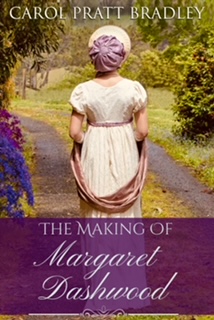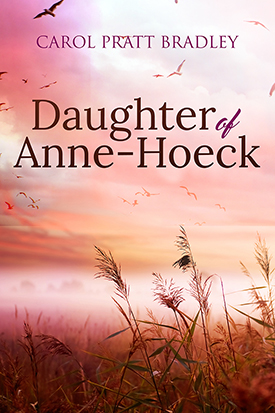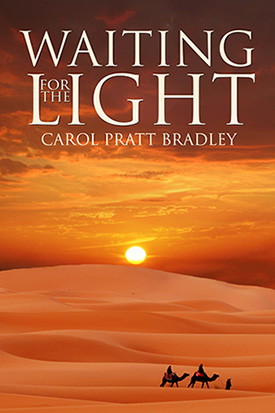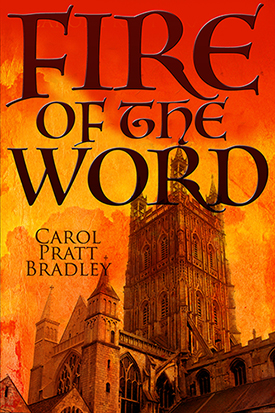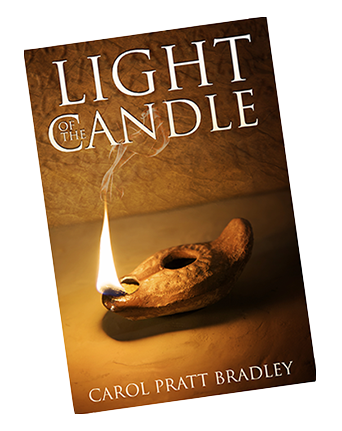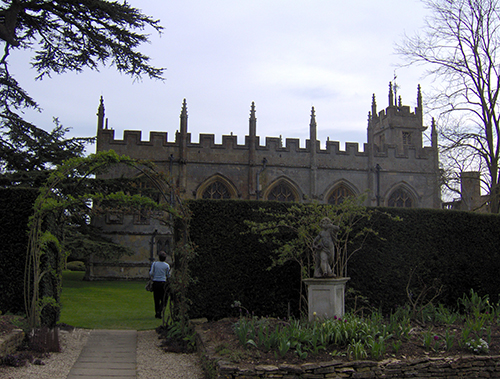
I love history and writing, so I combine the two and write historical novels. This picture says a lot about my writing journey.
My sister shot this in April of 2008. The novel I was working on for my MFA thesis was set in 16th century England, so I decided that a long-dreamed of trip to England was essential. My husband needed to stay and shepherd our two children still at home, so I brought two of my sisters and we toured London and western England for ten incredible days. Some called us “the mad American women.”
The woman I wrote about lived during Henry VIII’s time and knew Catherine Parr, the king’s last wife. Catherine’s tomb lies in this chapel, on the grounds of Sudeley Castle in Gloucestershire. After our return home, I saw this photo. I watch myself step into another world.
Why I Write Historical Novels:
The best written histories read almost like a story. History is one great story, comprised of an infinite number of the tiny stories of every individual who has ever lived. Historical novels individualize history.
Writer Richard Price says: “The bigger the issue, the smaller you write. Remember that. You don’t write about the horrors of war. No. You write about a kid’s burnt socks lying on the road. You pick the smallest manageable part of the big thing, and you work off the resonance.” You write about the individual.
Another way to ask the question is, why do I like to look back at what is past?
Things make sense when we look back. We have hindsight, for we know the ending. If we can make sense of what has gone before, then we can better understand our present. Looking back helps to put the pieces together, for we know the beginning, the middle and the end. It gives perspective. Looking back ties the past, the present, and the future together: what was, what is, and what can be.

"The past no longer belongs only to those who once lived in it; the past belongs to those who claim it, and are willing to explore it, and to infuse it with meaning for those alive today. The past belongs to us, because we are the ones who need it." -Margaret Atwood
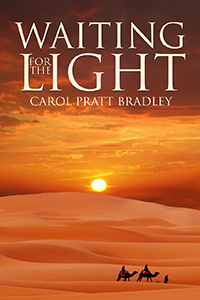
Three thousand Jews have been brought as hostages to Babylon, as King Nebuchadnezzar continues his subjugation of the land of Judah. Daniel, now governor of the province of Babylon, is in a position to aid his people as they resettle outside of the ancient city of Nippur.
Daniel and Sarai are briefly reunited after eight long years of separation, but obstacles remain before they can be together. Daniel must secure permission to marry from King Nebuchadnezzar, whose increasingly erratic behavior has Daniel fearing for the king’s sanity and for the safety of his people.
As the Jews strive to adjust and even prosper in the land of their enemies, their future remains uncertain. Daniel, in his position of power, moderates King Nebuchadnezzar’s erratic behavior toward the Jewish captives. But if he loses his position, the people will suffer.
Meanwhile, the young and foolish Jehoaichin, puppet-ruler back in Jerusalem, continues to defy the Babylonian king, whose patience toward the Jews is wearing thin.
Daniel and Sarai face a precarious future, both for themselves and their people.
 Follow my Board on The Life and Times of Daniel in the Old Testament
Follow my Board on The Life and Times of Daniel in the Old Testament
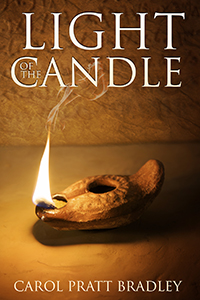
As a young nobleman at the court of Jerusalem, Daniel’s life is one of privilege. His childhood friend, Sarai, is betrothed to him. Sarai’s future also stretches securely before her. She will marry the boy she loves and they will live together in their beloved homeland.
But outside the city gates waits Judah’s conqueror, Nebuchadnezzar, prince of Babylon, who demands a heavy price for peace. He takes treasures from the great temple of Jerusalem and hostages from among the promising young scholars, who will serve him in the court at Babylon.
Daniel’s dreams are filled with strange images of things he has never seen. When Daniel’s father ensures that he is one of the young men selected, the dreams become frighteningly real.
The prophet Jeremiah’s dire warnings have come to pass for Daniel, Sarai and for all of Judah, that the voice of mirth and gladness are taken, the voice of the bride and bridegroom, and the sound of the millstones and the light of the candle.
Sarai in Jerusalem and Daniel in Babylon will face the same challenge: to keep hope bright as darkness closes in.

Follow my Board on The Life and Times of Daniel in the Old Testament
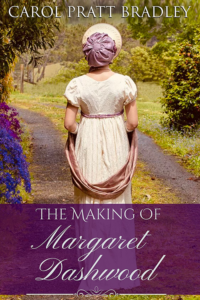
Now that Elinor and Marianne are married, sixteen-year-old Margaret Dashwood is next, according to the teasing Sir John Middleton and his mother-in-law Mrs. Jennings. A young woman of no fortune and little to recommend her, however, Margaret’s romantic notions are limited.
On holiday to Bath with her mother, Margaret befriends Miss Barbara Spooner, the future wife of the eminent Member of Parliament, William Wilberforce. Unlike Margaret’s silly friends the Carey sisters, Barbara cares about things of substance: religion and the education of the poor and the abolition of slavery.
On the way home, Margaret and her family visit Whitwell, the beautiful estate of Colonel Brandon’s relations, the Talleyrands. They are a most agreeable family, except for the bothersome son, Benjamin, who teases her mercilessly.
Unexpected events take Margaret away from Devonshire, leading her into the center of fashionable London society, to her childhood home of Norland Park and to the seaside town of Brighton. Finally, into the wild beauty and terrible poverty of Cheddar Gorge, where Margaret gains a wider view of the world.
Based on Sense and Sensibility, this historical fiction by award-winning author Carol Pratt Bradley, is written in Austen’s style with wit and humor, exploring the question: Whatever became of Margaret Dashwood?
I love to hear from my readers!
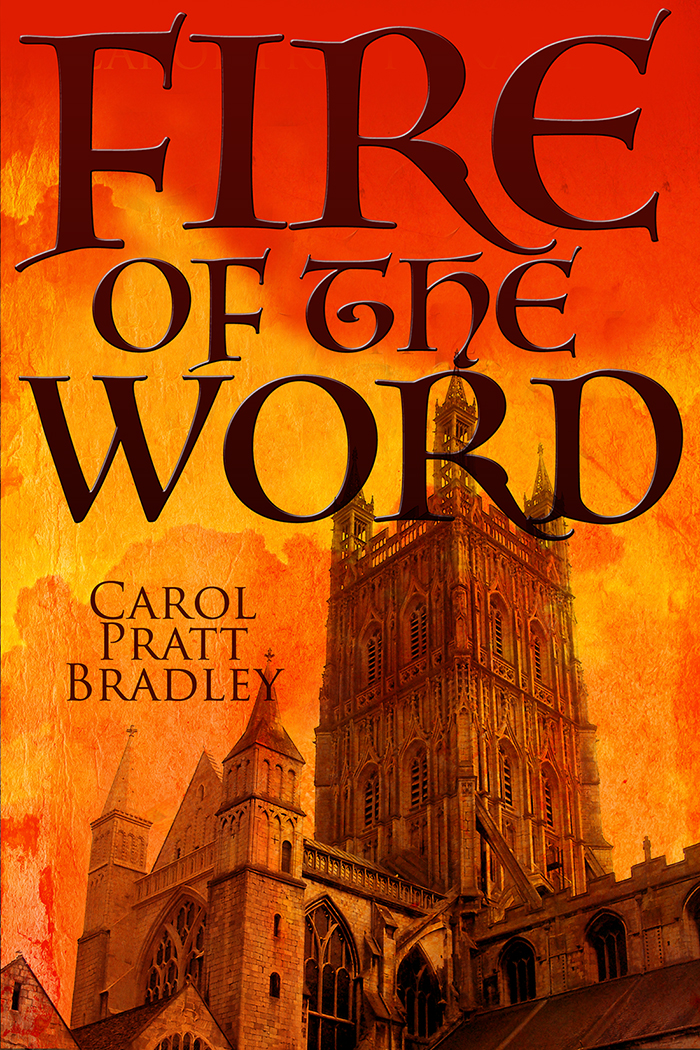
Young English noblewoman, Anne Ayscough, lived during the turbulent times of Henry VIII, when Protestant reformist ideas clashed violently against entrenched Catholicism.
Yet many, especially the wealthy, owned William Tyndale’s New Testament, including the household of Sir William Ayscough in Lincolnshire. In her family home, Anne grew in an atmosphere of openness, gleaning new ideas from her brothers who were educated at Cambridge, a hotbed of Protestant ideals.
At the age of fifteen, Anne’s life changed drastically. Her older sister Martha, betrothed to a son of a family staunch in the Catholic faith, contracted a fever and died. With the financial arrangements for the marriage already in place, Anne’s father ordered her to stand for her dead sister, forcing his daughter to enter a loveless marriage.
England’s religious war became Anne’s as she clung tight to her own ideals in her husband’s house. This eventually brought her into the center of the vicious political and religious battles where she was faced with a choice.
Anne could deny the truths she had embraced as a young woman and live, or hold fast to her beliefs and be put to death.

Follow my board on 16th Century English History: Life and Times of Anne Ayscough
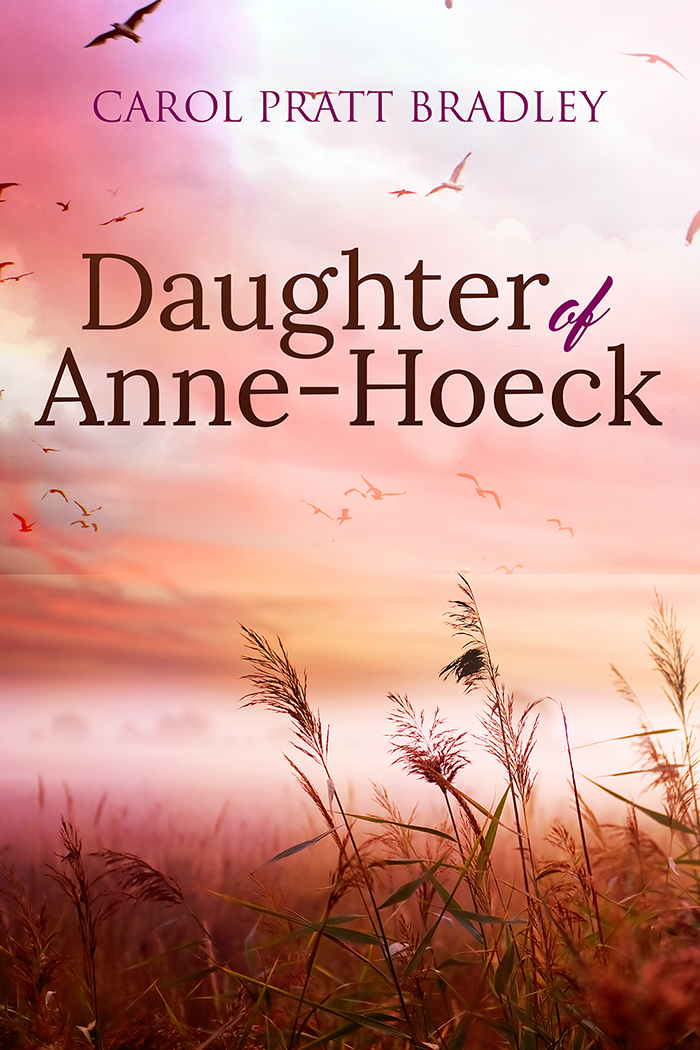
Fifteen year old Susanna has returned at last to Boston from her years spent living in the Indian village, after her beloved mother and half her fourteen siblings were slaughtered. John Winthrop and the other authorities are watching closely, determined that Susanna conform to the strict society, and not become like her outspoken, renegade mother, Anne Hutchinson. Will Susanna be accepted back into Puritan society, or be only an object of pity and scorn? How can she build a new life for herself out of the ashes of all that has gone before?
Click here to read the press release from WiDo Publishing.
Click here to see a Q&A on “A Place Between” with the author, Carol Pratt Bradley.
 Follow my Board on
Follow my Board on
The Life and Times of Anne Hutchinson
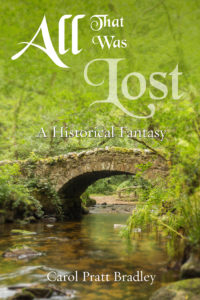
Part of my soul I seek thee, and thee claim my other half.
What could have been. What should have been. How those words can haunt….
Margery Pendele, the bastard daughter of the Lord of the Manor, has been cheated by life. Alice Yonge has been cheated by death. This is the tale of two young women determined to have more than life gave to them.
As their two lives become intertwined, Alice and Margery set out to find all that they had lost. The Dark Ones follow them everywhere. One of them is even in the memories Alice sees at the Fountain in the Vale. Along the way, Alice enlists the unlikely aid of Antonius, the ghost of the Roman soldier who guards the bridge of the 17th century village of Castle Combe, and the fearsome Saxons and Danes, still locked in battle in Parsonage Wood. Her only weapons are the white stone given to her by the Seraph and the power of her love.
Women, the Book of Mormon, and the Law of Moses
Summer 2003
Women in Hebrew and Ancient Near Eastern Law
Winter 2003

